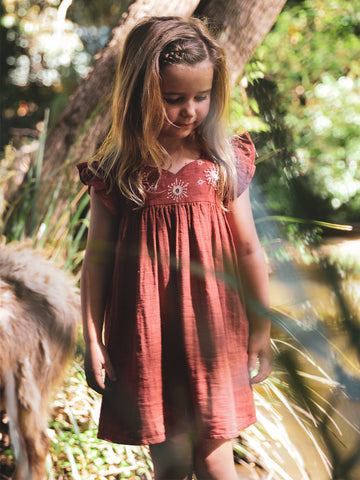Companies offer healthy clothing alternatives for today's babies. The chemical-free and pesticide-free cotton that our entire line is part of is certified by Union.
The Control Union has also verified that the starling is nickel-free, the dye contains a minimum of metal, and that the clothing doesn't cause the rash and irritation that usually occurs when it's made of traditional cotton.
The importance of organic baby clothing without chemicals and pesticides is supported by the latest statistics on the content of harmful elements in conventional cotton. You can also buy Eshri embroidered dress online for your baby.

According to Lotus Organics, "Millions of children in the United States by age five receive up to 35% of a lifetime dose of certain carcinogenic pesticides from food, contaminated drinking water, household use, and transportation of pesticides."
The most surprising aspect of this statement is that children are exposed to these at a time when they are most susceptible to these toxic elements.
This dilemma is fully explained on the Johnson and Johnson website, which states, "Babies' skin is thinner, more fragile, and less oily than adults.
Baby's skin also produces less melanin, a substance used to protect it from sunburn. It's less resistant to bacteria and harmful substances in the environment, especially when irritated.
Babies also sweat less effectively than others, making it more difficult to maintain their inner body. Also, it is very easy to buy organic baby clothes from Rise The Community online.
Baby's skin is too porous, meaning that contaminants can penetrate the system in higher concentrations worn on clothing that can be in contact with the baby's skin for hours, the potential for exposure to toxins increases dramatically.
One of the potential carriers of this poison is conventional cotton, one of the largest garment crops in the world. The industry itself costs $ 2.6 billion in pesticides annually.
Because cotton is not a food crop, it is not regulated for pesticides, herbicides, or chemicals that come into contact with it.